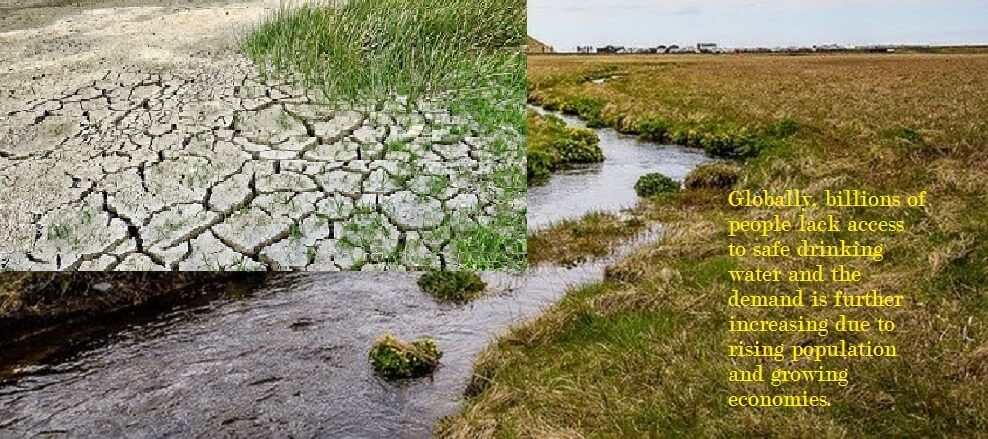Global water crisis demands the need for valuing water
Water is a scarce and indispensable natural resource. Globally, billions of people lack access to safe drinking water and the demand is further increasing due to rising population and growing economies. The sustainable development goal (SDG 6) represents water and sanitation for all by 2030.
In order to achieve this by creating public awareness and educating people regarding the importance of water, world water day is celebrated on 22nd March every year focusing on the theme area which is “valuing water” given for this year 2021.
Also Read: World Water Day 2021- importance, origin, why on march 22 and how in India
Understanding the value of water
Water has multiple uses to different individuals varying across space and time. Uses of water in different sectors can be classified as domestic, agriculture, industrial, infrastructure development, energy supplies, human health and protection of ecosystem.
A value is assigned to a commodity based on its utility, water is used in many ways by different individuals for gaining social, economic, health, ecological, and cultural benefits at different places and at different period of time. The value should also include the use of water by the future generations too. Valuing water needs to be efficient, productive, equitable and sustainable.
Pricing v/s valuing of water
Value is based on the use of the commodity whereas; the price is given in terms of its monetary value which includes its production cost with some margin. The real or true multidimensional value of water is much more than its price.
Also Read: Virus disease in cage fish farming near Kundapur in Udupi Re-reported
In 2017, the United Nation (UN) and World Bank high level committee on water launched the valuing water initiative, which provides principles and paths for valuing water, stated that water and its sources must be respected because they have the power to harm, divide, or even destroy communities if ignored or misused.
Principles behind the value of water should account for its multiple and diverse uses to different living beings. It should be equitable, transparent and inclusive. To value, manage and protect all sources of water for current and future generations. Promote public awareness, education about the intrinsic value of water.
A fundamental human right is universal access to safe drinking water and sanitation. Access to fresh water can be increased by conserving water through rain water harvesting structures; ground water recharge, afforestation, mulching and agro-forestry.
Also Read: Apollo Hospitals works with millets growing women for hospitals diet
Valuing water would also improve universal access, water quality, water use efficiency (WUE), sanitation, hygiene, ecosystem protection. Value of water can be a base for both administrative and market pricing of water and water related services, pricing of pollution and for the secure tradable water rights. Conserving water resource for present and future use is necessary by ensuring innovative measures and indigenous knowledge.
Note: The views expressed are of authors alone and do not represent the views of the institute.
Authors:
- Dr. SM Vanitha, Scientist (Agricultural economics), ICAR- (Indian Institute of Soil and Water Conservation) IISWC, Research Centre, Udhagamandalam, TN
- Dr. HC Hombegowda, Senior Scientist, ICAR-IISWC, RC, Udhagamandalam, TN
- Dr. K. Kannan, Principal Scientist and Head (I/c), ICAR-IISWC, RC, Udhagamandalam, TN


















Add Comment